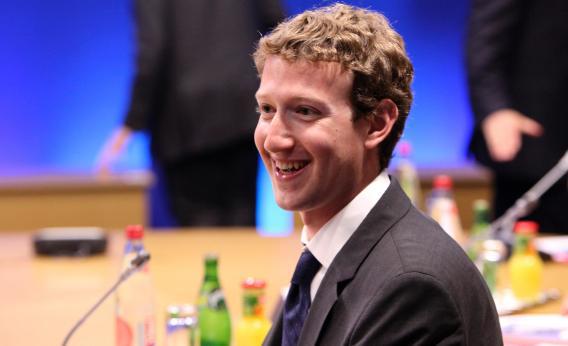Facebook is still on track for a mid-May IPO despite the embarassment of needing to admit to a 12 percent fall in profits in Quarter 1 earlier this month. Sky-high valuations for high-tech companies perceived as possessing growth potential are nothing new, but an actual fall in profits may set off some second-guessing about the much-touted $100 billion valuation on the company.
After all, if $205 million per quarter—$820 million per year—represents Facebook’s steady state of operations, then a $100 billion valuation would give the company a price/earnings ratio of over 120. That would be absurd for a mature company, but the idea would presumably be that Facebook is going to grow a lot. Where the math gets tough for Facebook is that it’s already a really big company with 900 million users. If its profits double then double again then double again then at $100 billion it would have a PE ratio of 15, which conveniently is the market’s long-term average. On the other hand, if Facebook’s user base doubles then doubles again and then doubles again it would have 7.2 billion users. That is approximately the entire current population of the planet. And of course some of those 7 billion people are small children, subsistence farmers, or toiling in North Korean labor camps, while a rather large fraction live in the People’s Republic of China where they’re already on an in-house Facebook substitute.
That’s not to say that Facebook can’t earn enough profits to justify a $100 billion valuation—perhaps Q4 2011 is more representative than Q1 2012—but the point is that even if you absolutely believe that Facebook is hurtling toward ubiquity among the customer base of people who have electricity and live in countries where it’s not illegal, that Facebook still needs to find some way to substantially boost per user profits. Obviously they’re hard at work on the task and perhaps will succeed, but it’s striking that even massive growth in the popularity of an already popular already profitable company can’t quite get you there. I think that’s more context for the Instagram acquisition—Facebook really does need to find ways to use the resources at its disposal to grow the scope of what it does and not just add more people to the network.
